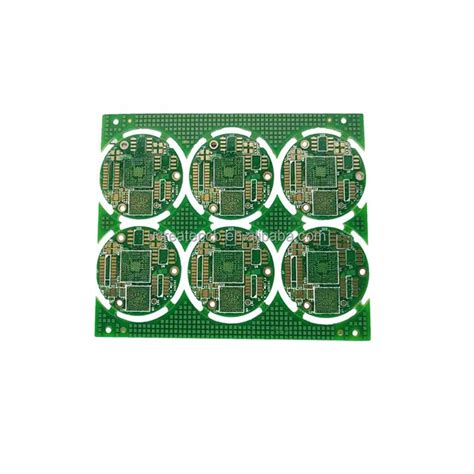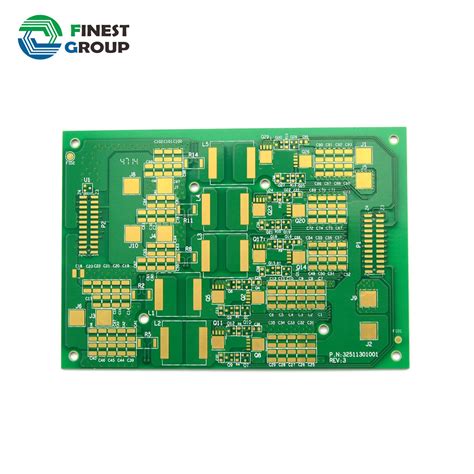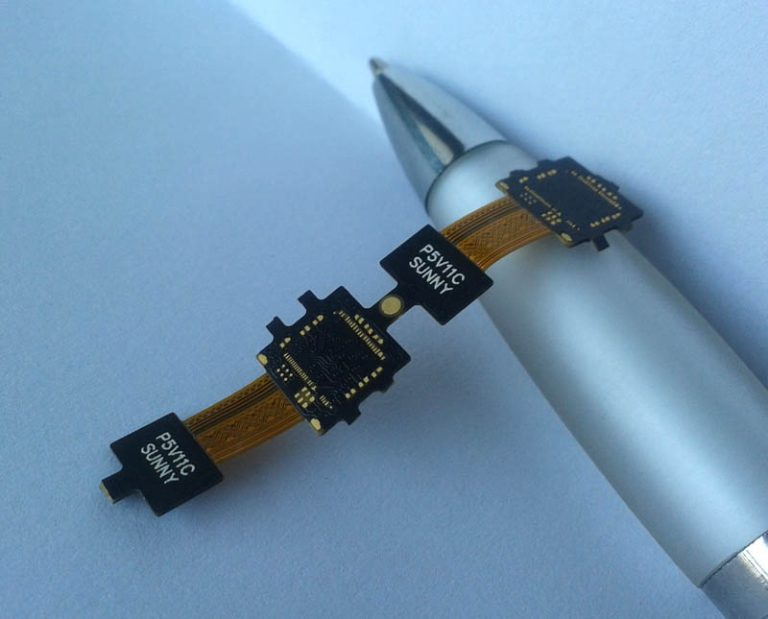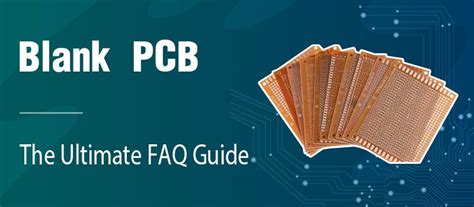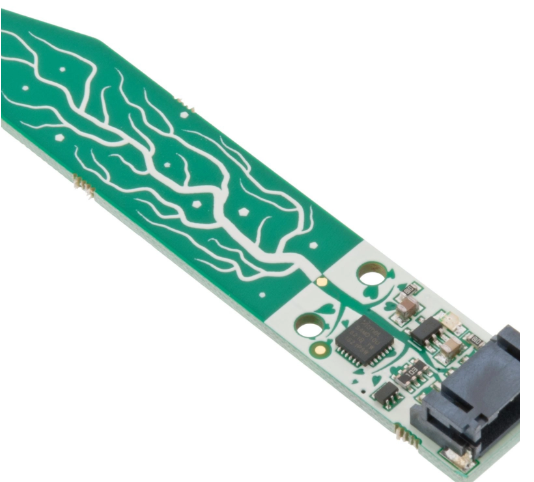Top PCB Board Suppliers for Reliable Circuit Manufacturing
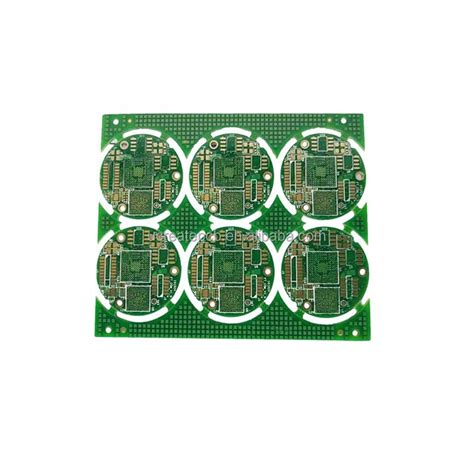
Key Takeaways
When navigating the landscape of PCB manufacturing, understanding core considerations ensures you select partners aligned with your project’s technical and financial needs Leading PCB manufacturing companies such as JLCPCB, ALLPCB, and Imagineering each bring distinct strengths, whether prioritizing rapid prototyping, cost efficiency, or specialized support Balancing PCB manufacturing cost with reliability often hinges on material quality, lead times, and scalability—factors that vary significantly between suppliers
Tip: Always request detailed breakdowns of production timelines and material certifications to avoid unexpected delays or compromises in circuit performance
For startups and established enterprises alike, the PCB manufacturing business requires evaluating not just upfront pricing but long-term partnership value Regional suppliers, particularly US-based options, may offer advantages in logistics and communication, though global providers often excel in high-volume affordability When transitioning from prototyping to full-scale production, prioritize vendors with transparent quality-control processes and responsive technical teams
Key questions to ask potential suppliers include:
- How do they handle design revisions or mid-production changes?
- What certifications (e.g., ISO, UL) do their facilities hold?
- Can they provide references for projects similar to yours?
By methodically comparing these elements, you’ll mitigate risks while securing a partner capable of scaling with your PCB manufacturing demands
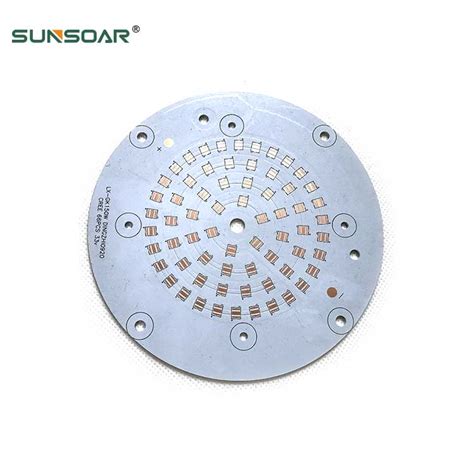
Comparing JLCPCB vs ALLPCB: Cost & Quality
When evaluating PCB manufacturing partners, balancing cost and quality requires careful analysis of service offerings Both JLCPCB and ALLPCB are prominent PCB manufacturing companies, but their approaches differ in ways that impact your project’s success
JLCPCB is widely recognized for its cost-effective solutions, particularly for prototyping and small-batch orders Their online quoting system simplifies PCB manufacturing cost estimation, with standard 2-layer boards starting as low as $2 for 10 pieces However, their pricing model prioritizes volume, meaning per-unit costs drop significantly for orders above 100 units ALLPCB, while competitive, often charges 15–20% more for comparable specs but adds value through faster turnaround times and enhanced material options like Rogers 4350B for high-frequency applications
| Feature | JLCPCB | ALLPCB |
|---|---|---|
| Base Price (2-layer) | $2/10pc | $230/10pc |
| Lead Time (standard) | 3–5 days | 2–4 days |
| Advanced Materials | Limited selection | 15+ specialized options |
| DFM Check | Automated | Engineer-assisted |
Quality benchmarks reveal further distinctions JLCPCB’s certifications (ISO 9001, UL) ensure baseline reliability for general-purpose boards, but their budget-friendly approach may limit advanced testing like impedance control ALLPCB invests in stricter quality protocols, including 100% electrical testing on all orders and optional 3D AOI inspection—critical for PCB manufacturing business projects requiring high-reliability outputs
Your choice depends on project priorities JLCPCB excels in affordability for straightforward designs, while ALLPCB’s marginally higher costs align with complex layouts or mission-critical applications Always request sample boards to evaluate solder mask consistency and via reliability firsthand—a practical step many engineers overlook when comparing PCB manufacturing partners
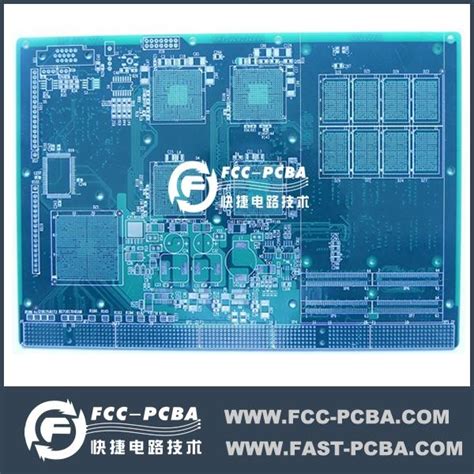
Key Factors in Choosing PCB Suppliers
When evaluating PCB manufacturing companies, your selection process should balance technical expertise with practical business considerations First, assess their track record in delivering consistent quality across PCB manufacturing stages—from material sourcing to final testing Reliable suppliers often hold certifications like ISO 9001 or IPC-A-600, which signal adherence to industry standards Next, analyze PCB manufacturing cost structures transparently While lower prices may seem appealing, hidden fees for design revisions or expedited shipping can inflate budgets Prioritize partners that offer detailed, upfront pricing tiers aligned with your project’s scale—whether it’s a 10-piece prototype or a 10,000-unit production run
Technical support is another critical factor Leading PCB manufacturing providers assign dedicated engineers to troubleshoot design files, optimize layouts for manufacturability, and recommend cost-saving material alternatives For instance, some suppliers may suggest switching from FR-4 to high-frequency laminates if your application demands better signal integrity Additionally, review their capacity to scale with your PCB manufacturing business needs A supplier specializing in rapid prototyping might lack the machinery for high-volume orders, creating bottlenecks during product launches
Supply chain resilience often separates adequate partners from exceptional ones Inquire about their component inventory management, lead times for multilayer boards, and contingency plans for material shortages Finally, prioritize companies with robust customer service frameworks—24/7 chat support, real-time order tracking, and clear escalation protocols for quality disputes By weighing these factors holistically, you’ll align your PCB manufacturing strategy with a supplier capable of supporting both immediate and long-term objectives
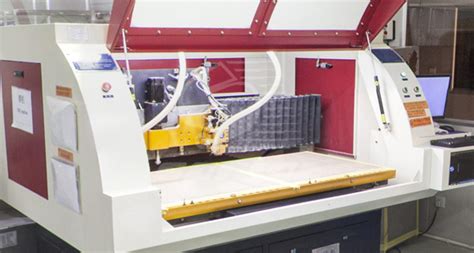
Prototyping to Production: Best PCB Partners
When building electronic devices, transitioning from prototyping to full-scale pcb manufacturing requires partners who offer both flexibility and scalability Leading pcb manufacturing companies like JLCPCB and ALLPCB specialize in bridging this gap, providing cost-effective solutions for low-volume batches while maintaining production-grade quality Imagineering Inc stands out for high-complexity designs, particularly when tight tolerances or advanced materials are critical
Your choice hinges on balancing pcb manufacturing cost with reliability For early-stage prototypes, suppliers offering instant quoting tools and rapid turnaround (often 24–48 hours) help validate designs without overspending However, as volumes grow, you’ll need partners with automated assembly lines and rigorous testing protocols to minimize defects Some providers, such as Andwin PCB & Assembly, combine prototyping agility with mass-production capabilities under one roof, reducing logistical friction
A common pitfall is underestimating the expertise required for scaling a pcb manufacturing business The ideal partner proactively identifies design-for-manufacturability (DFM) issues early, offers material substitution options during component shortages, and provides real-time order tracking Look for suppliers with ISO-certified facilities and IPC-A-600 compliance—these standards ensure consistency across batches, whether you’re ordering 10 units or 10,000
Regional availability also plays a role While Asian suppliers dominate low-cost pcb manufacturing, North American and European options like Imagineering reduce lead times for local markets Whichever route you take, prioritize transparency in pricing structures—hidden fees for tooling, engineering reviews, or shipping can erode initial pcb manufacturing cost advantages By aligning with partners that support both iterative prototyping and streamlined production, you mitigate risks while accelerating time-to-market
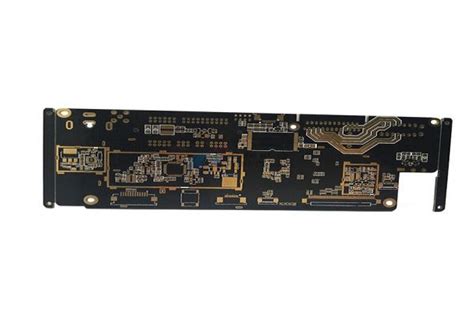
PCB Manufacturing Cost vs Reliability Balance
When evaluating PCB manufacturing partners, you’re often faced with a critical trade-off: minimizing PCB manufacturing cost while ensuring long-term reliability While budget-conscious decisions might lead you toward lower-priced options, compromising on quality can result in costly failures during prototyping or production PCB manufacturing companies typically structure pricing based on material grades, layer counts, and surface finishes—factors that directly influence both cost and performance For instance, opting for standard FR-4 substrates instead of high-frequency laminates might reduce upfront expenses but could limit signal integrity in high-speed applications
This becomes especially relevant when scaling from prototypes to full-scale PCB manufacturing business operations Lower-cost suppliers may offer attractive rates for small batches, but inconsistent quality control could lead to higher defect rates in larger orders The key lies in identifying suppliers that provide transparent pricing tiers without sacrificing critical reliability metrics like thermal stability or impedance control Many providers now offer hybrid models—combining affordable prototyping services with rigorous testing protocols for production runs—to help bridge this gap
While material choices account for ~40% of total PCB manufacturing cost, don’t overlook secondary factors like lead times or technical support A supplier offering slightly higher rates might include free design-for-manufacturability (DFM) checks, preventing costly redesigns later Similarly, standardizing with a single partner for both prototyping and production can unlock volume discounts while maintaining consistency
Ultimately, balancing cost and reliability requires aligning your project’s risk tolerance with supplier capabilities For mission-critical applications, investing in certified PCB manufacturing companies with ISO 9001 or IATF 16949 certifications often pays dividends in reduced failure rates Conversely, non-critical projects might prioritize cost savings through thinner copper weights or panel-sharing options—provided electrical performance remains uncompromised
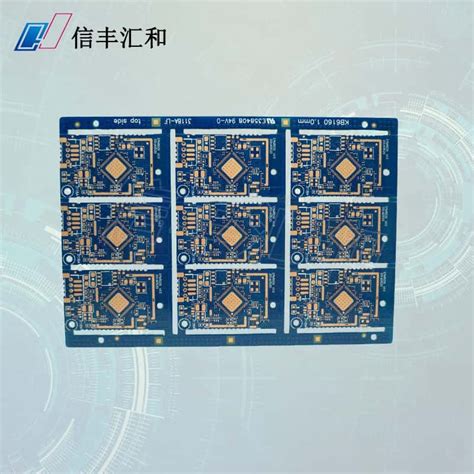
Regional PCB Suppliers: US-Based Options
When sourcing PCB manufacturing partners, considering regional providers can offer distinct advantages in logistics, compliance, and communication For businesses prioritizing proximity, U.S.-based PCB manufacturing companies like Advanced Circuits, Sunstone Circuits, and Sierra Circuits stand out for their adherence to rigorous quality standards and faster turnaround times These suppliers often streamline prototyping to production workflows, reducing lead times by up to 30% compared to overseas alternatives—critical for industries like aerospace or medical devices where regulatory compliance is non-negotiable
While PCB manufacturing cost in the U.S may initially appear higher, it’s essential to weigh this against hidden expenses from overseas partnerships, such as import duties, shipping delays, or language barriers Domestic suppliers typically provide clearer pricing models and dedicated customer support, ensuring fewer disruptions in your PCB manufacturing business For instance, Advanced Circuits offers real-time order tracking and design-for-manufacturability (DFM) checks, minimizing costly redesigns
Regional suppliers also excel in specialized services Sierra Circuits, for example, supports high-frequency RF designs, while Sunstone specializes in low-volume, high-mix production—ideal for startups scaling prototypes By aligning your needs with a supplier’s niche expertise, you optimize both reliability and long-term partnerships
However, balancing PCB manufacturing cost and quality remains pivotal Some U.S providers offer hybrid solutions, combining domestic prototyping with offshore mass production—a strategy that maintains quality control for critical stages while managing budgets This flexibility ensures you’re not locked into a one-size-fits-all approach
Ultimately, choosing a regional supplier depends on your project’s complexity, timeline, and risk tolerance For mission-critical applications where every micron matters, investing in a local partner could safeguard your timelines and product integrity As you evaluate options, consider how their capabilities align with your roadmap—whether you’re iterating prototypes or ramping up volume—to make a decision that sustains growth without compromising performance
Expert Tips for PCB Supplier Selection
Selecting the right partner for PCB manufacturing requires balancing technical expertise, cost efficiency, and scalability Start by evaluating a supplier’s technical capabilities—look for certifications like ISO 9001 or IPC standards, which signal adherence to quality control in PCB manufacturing companies For prototyping phases, prioritize firms offering rapid turnaround and design-for-manufacturability (DFM) feedback to refine your boards before full-scale production
When analyzing PCB manufacturing cost, avoid the trap of prioritizing upfront savings over long-term reliability Low-cost providers may cut corners on material quality or testing protocols, risking failures in critical applications Instead, request detailed breakdowns of material sourcing, layer stacking, and testing methodologies to ensure your budget aligns with performance requirements For instance, high-frequency applications demand specialized substrates like Rogers material, which impacts costs but ensures signal integrity
Scalability is another key consideration A supplier’s ability to transition from prototyping to high-volume production without compromising quality defines their value in the PCB manufacturing business Verify their capacity through metrics like monthly output, lead times for bulk orders, and flexibility in handling design revisions Supply chain transparency also matters—ask about their component sourcing networks to avoid delays caused by material shortages
Don’t overlook customer support and communication Reliable PCB manufacturing partners provide dedicated engineering assistance, real-time order tracking, and clear escalation paths for issues Evaluate responsiveness during initial inquiries—a delay in replying to RFQs often reflects broader operational inefficiencies Finally, weigh regional vs global suppliers based on your priorities: domestic vendors may offer faster logistics, while overseas options could reduce PCB manufacturing cost for budget-sensitive projects
By aligning these factors with your project’s technical demands and business goals, you’ll streamline supplier selection and build partnerships that drive innovation while mitigating risks
Why Imagineering Leads PCB Manufacturing
When evaluating PCB manufacturing companies for your project, you need a partner that balances technical expertise with operational agility Imagineering Inc stands out by combining precision engineering with scalable solutions tailored for both prototyping and high-volume production Their approach to PCB manufacturing focuses on minimizing PCB manufacturing cost without compromising on traceability or material quality—a critical factor when transitioning from design validation to full-scale deployment
What sets Imagineering apart is their vertically integrated infrastructure By controlling every stage, from substrate sourcing to final testing, they reduce lead times by up to 30% compared to competitors This efficiency is particularly valuable for startups navigating tight timelines in the PCB manufacturing business, where delays in iteration cycles can derail product launches Their proprietary design-for-manufacturability (DFM) tools also help you avoid costly redesigns by flagging potential issues early—a level of proactive support rarely seen in the industry
For businesses prioritizing reliability, Imagineering’s certification portfolio (including ISO 9001, AS9100D, and IATF 16949) ensures compliance with aerospace, automotive, and medical-grade standards Their data-driven quality control processes, such as automated optical inspection (AOI) and cross-sectional analysis, provide documented evidence of board integrity—something essential when auditing supply chains
While PCB manufacturing cost remains a key consideration, Imagineering’s transparent pricing model eliminates hidden fees for tooling or minimum order quantities (MOQs) This flexibility makes them ideal for projects ranging from 10-unit prototype batches to 100,000+ production runs Combined with 24/7 engineering support, they empower you to scale operations without switching vendors—a strategic advantage in fast-moving tech sectors
By aligning their workflows with your technical and business requirements, Imagineering demonstrates why leadership in PCB manufacturing isn’t just about equipment portfolios, but about becoming an extension of your product development team
PCB Supplier Support & Customer Service
When evaluating PCB manufacturing companies, technical expertise is only half the equation—how they support your project’s unique demands matters equally Reliable customer service ensures you’re not left navigating design complexities, material choices, or PCB manufacturing cost challenges alone Leading suppliers like JLCPCB and ALLPCB, for instance, offer dedicated engineering teams to review your files, flag potential production issues, and suggest optimizations to reduce waste or improve yield This proactive approach can save weeks of revisions, especially for high-layer-count boards or specialized substrates
Beyond technical support, responsiveness defines a partner’s value Imagineering, a standout in the PCB manufacturing business, provides 24/7 chat support and assigns project managers to oversee orders from prototyping to bulk production Whether you’re troubleshooting impedance mismatches or negotiating tighter deadlines, timely communication minimizes downtime Smaller-scale suppliers might lack these resources, risking delayed feedback during critical phases
Consider how suppliers handle design for manufacturability (DFM) feedback Top-tier providers deliver detailed reports with annotated suggestions—like adjusting trace widths or repositioning components—to align your design with their PCB manufacturing capabilities This collaborative process reduces the risk of costly respins, particularly for complex HDI or flex-rigid boards
Finally, transparency in quoting and post-sale support separates exceptional partners from average ones Look for suppliers that break down PCB manufacturing cost drivers (e.g., material grades, surface finishes) and offer warranties on their workmanship After all, a supplier invested in your long-term success will prioritize not just delivering boards but ensuring they perform reliably in your end application
Conclusion
When navigating the complexities of PCB manufacturing, the final decision hinges on aligning your project’s unique demands with a supplier’s capabilities Whether you prioritize rapid prototyping, scalable production, or specialized technical support, thorough evaluation of PCB manufacturing companies ensures you strike the right balance between PCB manufacturing cost and long-term reliability Leading suppliers distinguish themselves not only through competitive pricing but also by offering transparent communication, robust quality control, and adaptable solutions tailored to your PCB manufacturing business goals
As you weigh options, consider how each partner addresses critical factors like material sourcing, turnaround times, and compliance certifications Regional expertise can also play a role—while global providers may offer cost advantages, local suppliers often deliver faster logistics and personalized service Ultimately, the ideal choice supports your journey from concept to market-ready product without compromising on precision or scalability By prioritizing these elements, you position your projects to thrive in an industry where innovation and dependability define success
FAQs
What factors should you prioritize when selecting a PCB supplier?
When evaluating PCB manufacturing companies, focus on their expertise in handling your project’s complexity, turnaround times, and compliance with industry certifications like ISO or UL For instance, suppliers like JLCPCB and Imagineering are known for balancing PCB manufacturing cost with quality, making them ideal for both prototyping and large-scale production
How do you ensure reliability without overspending on PCB production?
Compare quotes from multiple suppliers, but avoid sacrificing quality for lower PCB manufacturing cost Look for transparency in pricing structures—some companies offer tiered pricing based on order volume For example, ALLPCB provides detailed breakdowns for materials, layer counts, and testing fees, helping you optimize budgets while maintaining reliability
Are regional suppliers better than global ones for PCB manufacturing?
It depends on your priorities US-based PCB manufacturing firms often provide faster shipping and localized support, which benefits urgent projects However, global suppliers might offer lower costs for high-volume orders Assess lead times, import duties, and communication efficiency before deciding
What support do leading PCB suppliers offer for prototyping?
Top PCB manufacturing business partners like Imagineering provide dedicated engineering reviews, DFM (Design for Manufacturability) checks, and 24/7 technical assistance This reduces errors during prototyping and accelerates your path to full-scale production
How do you transition smoothly from prototyping to mass production?
Choose a supplier with scalable capabilities, such as JLCPCB or ALLPCB, which specialize in handling both low-volume and high-volume orders Confirm their capacity for material consistency, quality control processes, and inventory management to avoid delays
Ready to Optimize Your PCB Project?
Explore tailored solutions for your PCB manufacturing needs—please click here to connect with experts and receive a customized quote today

